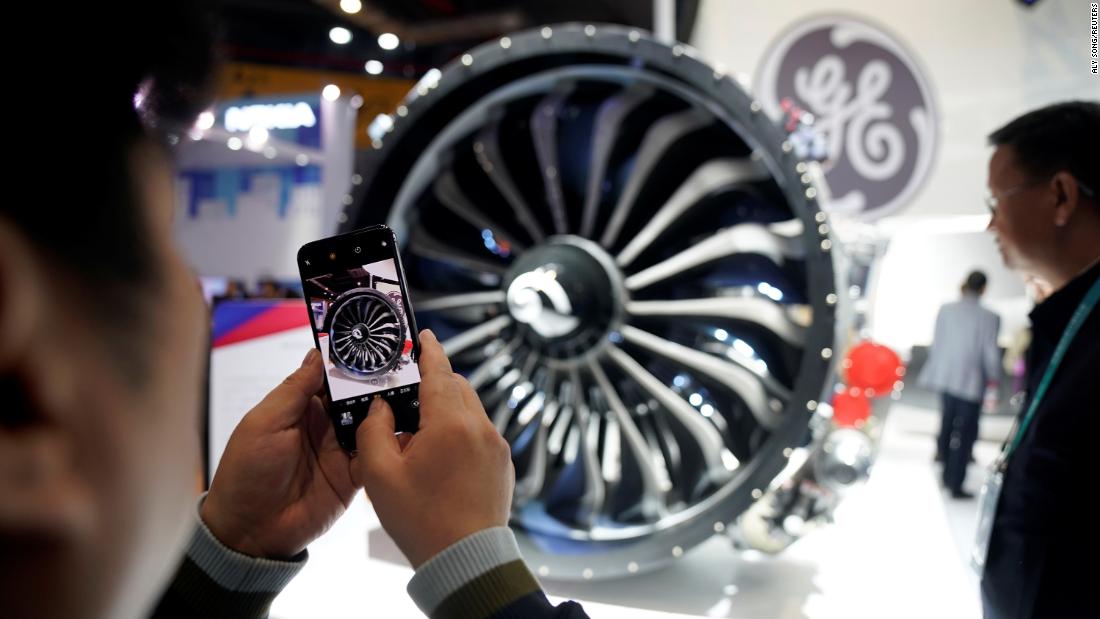
GE (GE) shares soared 10% on Thursday after JPMorgan Chase upgraded the stock to "neutral" and spelled out a path for resuscitating the downtrodden conglomerate.
It marks a significant milestone because JPMorgan analyst C. Stephen Tusa, Jr. is easily the biggest GE bear. And he holds great sway. Tusa presciently went negative on GE in May 2016, when the stock was trading at $30. Since then, GE has lost an incredible three-quarters of its value because of a shrinking cash flow and mounting debt.
But this prophet of GE doom now believes the risk-reward on the stock is more balanced. The nosedive in GE's shares signals investors have priced in much of the bad news that Tusa was worried about for years.
"It's possible that the company can execute its way through an elongated workout that limits near-term downside," Tusa wrote to clients on Thursday.
Years of bad decisions have left GE a shell of its former self. The once-great conglomerate was down 62% on the year as of Wednesday's close. Not only is that worst performance in the entire S&P 500, but it surpasses the crash seen in the crisis year of 2008. Investors are very worried about GE's debt-ravaged balance sheet — and all this recession talk is not helping.
Even accounting for Thursday's rally to $7.35, GE shares are trading at the same place they were at in March 1993. The stock has essentially gone nowhere for a quarter-century.
Facing a serious crisis, GE replaced CEO John Flannery on October 1 with Larry Culp, a widely respected manufacturing executive. Culp moved quickly to slash GE's dividend to a penny, sell a chunk of oil-and-gas giant Baker Hughes and raise $1.5 billion by selling a GE Capital portfolio of healthcare equipment leases and loans.
How GE could ease recession fears
Tusa is hardly calling for a speedy turnaround. While JPMorgan removed GE from its short list, Tusa kept a $6 price target on the stock through the end of 2019.
And GE could still face more pain ahead. Tusa warned that GE still needs to downgrade its long-term financial targets — a "negative event yet to come" and one that's necessary for the stock to "bottom."
Moreover, Tusa called for GE to take a bold step to repair its debt-riddled balance sheet: raise $25 billion by selling stock. GE hasn't done an equity raise since the 2008 financial crisis when Warren Buffett and other investors came to the rescue.
Tusa said that a $25 billion equity raise will help solve GE's debt debacle and shore up its massive pension shortfall. The funds could also be used to plug other holes, such as losses in GE Capital's long-term care insurance business.
Raising cash could also ease worries that GE will have significant trouble navigating the next recession, which could arrive in the next two years. An equity raise would "help to blunt the chief risk we see in a downturn, namely the balance sheet," Tusa wrote.
Betting on digital
Meanwhile, Culp continues to reshuffle GE's vast business empire in a bid to position the company to return to growth.
GE announced plans on Thursday to launch an independently run industrial Internet of Things software company. The new unit, with $1.2 billion in annual software revenue, will combine GE Digital's existing industrial IoT products like the Predix platform with GE Power's digital and grid software businesses.
GE is hoping to capitalize on the fast-growing demand for technology that enables factories and power plants to become more productive. These technology products include artificial intelligence and advanced analytics that help industrial companies cut costs and operate more efficiently.
GE said it has launched a search of internal and external candidates to lead the new IoT business. The company announced that GE Digital CEO Bill Ruh has decided to depart to pursue other opportunities.
At the same time, GE is scaling back its presence in at least one digital business. The company reached a deal to sell a 90% stake in ServiceMax to private equity firm Silver Lake. ServiceMax, acquired in 2016, sells cloud-based software productivity tools used by maintenance technicians.
GE, which is retaining a 10% stake in ServiceMax, declined to disclose terms of the sale to Silver Lake.
No comments:
Post a Comment